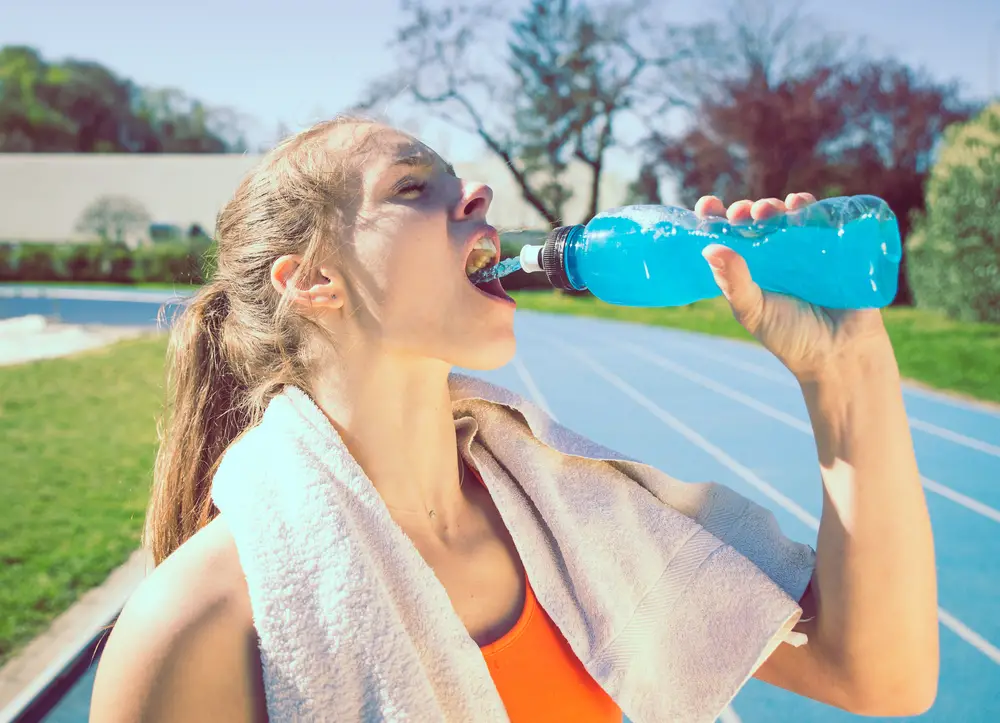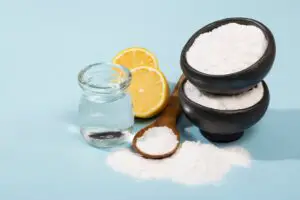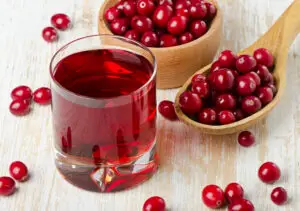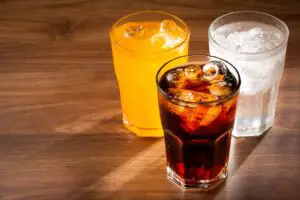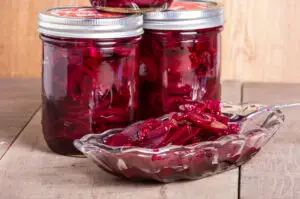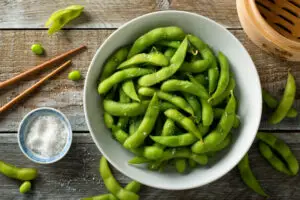Gatorade, a popular sports drink, has long been a go-to choice for athletes and fitness enthusiasts looking to replenish their electrolytes and remain hydrated during physical activity. However, with growing concerns over the high sugar content and artificial additives, more and more people are seeking Gatorade alternatives that offer similar benefits without the potential drawbacks.
Luckily, there is no shortage of Gatorade substitutes available in the market that are designed to help improve performance, maintain hydration, and aid recovery. These alternatives, such as Nuun Endurance and Tailwind Endurance Fuel, not only provide essential electrolytes, vitamins, and minerals but also contain less sugar, making them a healthier choice for those conscious of their sugar intake.
In this article, we will explore various Gatorade alternatives, highlighting the advantages they offer in comparison to the popular sports drink. From electrolyte-rich options to natural alternatives, our aim is to provide a comprehensive guide to help you make informed choices when it comes to selecting the ideal substitute for your hydration needs.
Essentials of Hydration
Proper hydration is crucial for maintaining overall health, especially during physical activities. Electrolytes play a significant role in the body’s hydration process, as they help regulate fluid balance, muscle contractions, and nerve function. Some of the essential electrolytes needed for optimal hydration are sodium, potassium, magnesium, and calcium.
Water is the primary component of hydration and maintaining a proper fluid balance in the body. Although plain water can be effective in some situations, it may not be sufficient to rehydrate and replenish electrolytes lost during intense physical activities or in hot climates. In these cases, it is essential to consider alternatives to ensure the body maintains an adequate level of hydration.
There are several alternatives to Gatorade that provide optimal electrolyte balance while promoting rehydration. Essential Elements Hydration, for example, offers a more complete electrolyte profile, contains zero sugar, and includes the added benefit of apple cider vinegar. Other alternatives include Liquid IV Hydration Multiplier, DripDrop, and Ultima Replenisher Hydration Powder.
Lastly, natural alternatives can also be considered for rehydration purposes. One such option is coconut water, which is rich in essential electrolytes like sodium and potassium. It contains 252 milligrams of sodium and 9 grams of carbohydrates per cup, compared to 160 milligrams of sodium and 21 grams of carbs found in typical Gatorade solutions.
In conclusion, selecting the right hydration product depends on individual needs, preferences, and activity levels. It is essential to consider the electrolyte profile, sugar content, and additional benefits when choosing the most effective method for replenishing fluids and maintaining electrolyte balance during and after physical activities.
Understanding Gatorade
Gatorade is a popular sports drink, designed to quickly replenish electrolytes and hydrate individuals after exercise. It is formulated to help athletes recover more rapidly, stay energised, and maintain peak performance. This beverage contains essential electrolytes and minerals such as sodium, potassium, magnesium, and calcium. These elements are vital for maintaining fluid balance, supporting muscle function, and preventing cramps.
Gatorade also provides a quick source of energy through the carbohydrates in its formula. Primarily, these come from sugar, which is easily absorbed by the body during or after exercise. An average serving of the sports drink contains around 36g of sugar, which can be helpful for immediate recovery. However, excessive sugar intake can lead to health issues in the long term.
The drink is available in various flavours to accommodate consumers’ preferences, and it typically contains a mix of minerals and electrolytes tailored to specific needs. For example, some formulas are higher in potassium compared to sodium, making them more suitable for individuals who experience muscle cramps after exercise.
Gatorade is a convenient and effective way for athletes to replenish lost electrolytes and stay hydrated, but it is crucial to understand when and how to consume it for optimal benefits. Many alternative sports drinks on the market cater to different nutritional needs and preferences, allowing individuals to choose the best option for their individual requirements.
Potential Health Implications of Gatorade
Gatorade, a popular sports drink, has been consumed by athletes and fitness enthusiasts for its electrolyte replenishment properties. However, it is essential to discuss the potential health implications associated with the consumption of Gatorade.
One notable concern is the high sugar content in Gatorade. It contains around 36 grams of sugar per 20-ounce serving, which significantly contributes to the overall caloric intake. This excessive sugar intake can be problematic, especially for individuals who engage in moderate or low-intensity physical activities, as it might lead to unnecessary weight gain. Moreover, a diet high in sugar is associated with an increased risk of obesity and health complications like type 2 diabetes and heart diseases.
The calories in Gatorade must also be taken into account. Consuming more calories than the body requires can result in weight gain and create a negative impact on a person’s overall nutrition. It is crucial to balance the calories consumed with the energy expended through physical activities to maintain a healthy body weight.
Furthermore, Gatorade may affect the brain negatively. Studies have shown that high sugar intake can influence brain function and even contribute to the development of neurodegenerative diseases like Alzheimer’s. As Gatorade contains a considerable amount of sugar, consuming it regularly might pose potential risks to the brain health in the long run.
In conclusion, while Gatorade can be beneficial for individuals engaging in high-intensity workouts and sports activities that require rapid electrolyte replacement, it’s essential to remain aware of the potential health implications. The high sugar content, calorie count, and possible effects on brain function should be taken into consideration when choosing a sports drink. Healthier alternatives, such as coconut water or homemade electrolyte drinks, are available for those looking to minimise the potential risks associated with Gatorade consumption.
Comparison with Other Sport Drinks
When considering alternatives to Gatorade, there are numerous other sports drinks on the market that cater to various needs and preferences. In this section, we’ll discuss a few notable options, comparing their performance, carbohydrates, energy, proteins, vitamins, and minerals to Gatorade.
Powerade is a popular choice and a close competitor to Gatorade. While both drinks offer similar carbohydrate and electrolyte content, Powerade contains added B vitamins, which aid in energy metabolism. Additionally, Powerade offers a protein-based option called Powerade Protein Shake, which provides 20g of protein per serving, targeting athletes looking for a post-workout recovery drink.
Bodyarmor is a relatively new player in the sports drink market, boasting a natural and healthy alternative to Gatorade. It contains a higher electrolyte content and fewer processed ingredients, using coconut water as its main base. Bodyarmor also offers a significant amount of vitamins A, C, and E, as well as antioxidants, making it a suitable option for those focused on overall health and wellness.
Liquid IV Hydration Multiplier is an on-the-go sports drink alternative that comes in portable packets. This top-rated product contains a balanced electrolyte profile and includes vitamins B3, B5, B6, B12, and C. The unique Cellular Transport Technology (CTT) in Liquid IV enhances rapid absorption of water and nutrients, providing speedy rehydration and energy replenishment.
DripDrop is another convenient option, specifically designed to combat dehydration more effectively than traditional sports drinks or water. This electrolyte-rich hydration solution is available in powder form and can be easily mixed into water. DripDrop contains three times the electrolytes of most sports drinks and half of their sugar content, making it an excellent choice for serious athletes and those in demanding situations.
In summary, the sports drink market offers many interesting alternatives to Gatorade, catering to various tastes and requirements. Whether you’re an athlete in need of optimal performance and recovery, or someone simply seeking better hydration, there is a sports drink that meets your needs.
Natural Alternatives to Gatorade
When considering healthier alternatives to Gatorade, there are a variety of natural options available that offer similar benefits in terms of hydration and replenishment. One popular substitute is coconut water, as it packs a punch in terms of electrolytes without unnecessary added sugars or artificial ingredients.
Coconut water is derived from the liquid inside a young coconut and is known for being an excellent source of natural electrolytes. It boasts a unique combination of potassium, sodium, and magnesium, which makes it a refreshing and effective choice for rehydration after intense exercise or activity.
In addition to coconut water, fruit juices can offer similar benefits for hydration and replenishment. For instance, lemon juice or other citrus juices provide natural sugars and electrolytes that help replenish energy stores and rehydrate the body. However, it is essential to opt for pure, freshly squeezed fruit juices and avoid the added sugars and preservatives commonly found in store-bought varieties.
Not to be overlooked, watermelon is also an exceptional source of vitamins, minerals, and antioxidants that can provide relief from dehydration and restore energy levels. Watermelon serves as a fantastic choice for a post-workout snack or light summer beverage, as it contains a high content of water alongside citrulline, an amino acid linked to reduced muscle soreness.
For those looking for a more organic alternative, tapping into the benefits of fresh fruit can also help in the restoration of lost electrolytes and hydration. The natural sugars contained in fruit offer a gentler form of energy replenishment without the excessive sugar content present in many sports drinks. Incorporating a variety of fruits rich in electrolytes, such as bananas, oranges, and strawberries, into a balanced diet can provide an effective means of restoring lost nutrients after physical exertion.
In conclusion, seeking natural alternatives to Gatorade can be a healthier approach to meeting your hydration and replenishment needs. By choosing options such as coconut water, fresh fruit juices, and watermelon, it is possible to maintain optimal levels of hydration without subjecting your body to the artificial ingredients and high sugar content found in many commercial sports drinks.
Specialist Hydration Products
When it comes to electrolyte replacement and hydration, specialist products are available on the market that cater specifically to athletes and those seeking efficient rehydration. These products aim to provide the necessary balance of electrolytes, such as sodium, chloride, and potassium, to help maintain optimal hydration levels during or after physical activity.
One popular option for electrolyte hydration are electrolyte tablets. These tablets dissolve in water, providing a convenient and portable way to replenish lost electrolytes during exercise. Products like Nuun Endurance and Tailwind Endurance Fuel offer high electrolyte content, but with reduced sugar levels compared to Gatorade, making them a healthier choice for athletes. They typically contain essential salts, such as sodium citrate and monopotassium phosphate, which help to maintain fluid balance.
Another alternative to Gatorade is the Liquid IV Hydration Multiplier, a powder that mixes with water to create an electrolyte-rich beverage. This product boasts a more comprehensive electrolyte profile, and also includes vitamins like B3, B5, B6, B12, and vitamin C to support overall health and immune function during high-intensity training or endurance events.
In addition to the electrolytes mentioned above, some specialist hydration products also contain other ingredients to enhance performance and recovery. Essential Elements Hydration offers a zero sugar formula with a comprehensive electrolyte profile, as well as the added bonus of apple cider vinegar. Apple cider vinegar is believed to offer numerous health benefits, such as promoting digestive health and supporting weight loss efforts.
Finally, citric acid is another common component found in specialist hydration products, as it helps to preserve the stability of the product while also providing a pleasant, tart flavour. This ingredient also has the added benefit of acting as a natural preservative, which extends the shelf life of these beverages.
In conclusion, specialist hydration products offer a wide range of electrolyte replacement options for athletes and active individuals seeking alternatives to traditional sports drinks like Gatorade.
Healthy Food and Drink Alternatives
When looking for alternatives to Gatorade, there are a variety of healthy options that provide similar benefits while also delivering additional nutrients. These alternatives are not only effective in replenishing lost electrolytes, but also offer other advantages for overall health and well-being.
One popular alternative is milk, as it naturally contains electrolytes such as calcium, sodium, and potassium. These electrolytes help to maintain hydration levels and muscle function during physical activity. In addition, milk provides a source of protein, which aids in muscle recovery post-exercise.
Chocolate milk is another option that combines hydration and recovery benefits. Its combination of carbohydrates and protein makes it an ideal post-workout beverage for restoring energy levels and promoting muscle repair. A study published in the Journal of Strength and Conditioning Research found that chocolate milk can be as effective as sports drinks for exercise recovery.
Broth, especially bone broth, is a nourishing alternative for those seeking natural hydration. It contains essential electrolytes such as sodium and magnesium, as well as important minerals like calcium and phosphorus. Favoured for its gut-healing properties, bone broth can contribute to better overall health alongside workout recovery.
In addition to fluids, it’s important to consider certain foods that can complement hydration when seeking Gatorade alternatives. Nuts, such as almonds and cashews, are a great source of magnesium – an essential electrolyte that aids in muscle and nerve function. Including a handful of nuts in your post-workout snack can help restore depleted electrolytes.
Beets are rich in potassium, another crucial electrolyte that supports hydration and muscle function. Incorporating beetroot juice or cooked beets into your diet can benefit cardiovascular health and endurance for athletic performance.
Lastly, consider superfood ingredients as part of a balanced post-workout routine. Chia seeds, for example, can retain around ten times their weight in water, providing sustained hydration. Chia is also a good source of omega-3 fatty acids, protein, and fibre. Other superfoods, like spirulina or goji berries, offer an array of vitamins and minerals that promote overall well-being.
In summary, it’s worth exploring various healthy food and drink alternatives that provide hydration, muscle recovery, and health benefits beyond what Gatorade offers. Incorporating these options into a balanced, nutritious diet can support athletic performance and general wellness.
The Science Behind Hydration and Performance
Proper hydration is essential for athletes as it plays a crucial role in maintaining physical performance, muscle function, and brain function. During high intensity exercise, the body loses fluids through sweat, leading to a reduction in blood volume and an increase in heart rate. This makes it more challenging for muscles to work efficiently, and may result in decreased focus and increased fatigue.
A well-functioning immune system is vital for athletes to maintain their performance and recovery. Hydration assists in regulating body temperature, reducing inflammation, and flushing out toxins. When the body is dehydrated, the immune system may be compromised, making it harder for athletes to recover from strenuous exercise and increasing their susceptibility to illness.
One common issue faced by athletes when dehydrated is muscle cramps. These can be painful and debilitating, hindering performance and potentially leading to injury. Electrolytes such as sodium, potassium, and magnesium, are essential for proper muscle function, and are lost through sweat during exercise. Sports drinks like Gatorade aim to replace these electrolytes to prevent cramps and promote optimal muscle function.
Additionally, amino acids play a crucial role in muscle recovery and performance, acting as building blocks for proteins and helping muscles repair after exercise. Some sports drinks contain amino acids, such as branched-chain amino acids (BCAAs), which may aid in muscle recovery and protect against muscle decline during prolonged exercise.
Caffeine is another ingredient often used in sports drinks, as it has been shown to improve endurance, focus, and overall performance in athletes. Despite its potential benefits, excessive caffeine intake can lead to negative side effects such as increased heart rate, jitters, and difficulty sleeping. Therefore, the consumption of sports drinks with caffeine must be carefully balanced with an individual’s tolerance and needs.
In conclusion, hydration is a critical factor that influences an athlete’s performance, muscle function, brain function, immune system, and recovery. Sports drinks can provide essential electrolytes, amino acids, and caffeine that may help athletes maintain optimal levels of performance and focus during activities. However, it is important to select the appropriate sports drink or alternative to meet each athlete’s unique requirements and preferences for the best results.
Decoding Product Labels
When searching for alternatives to Gatorade, it’s essential to carefully read product labels to determine the ingredients and nutritional content of each option. This will not only help to identify healthier substitutes, but also make informed choices based on individual preferences and requirements.
Many sports drinks contain added sugars, such as dextrose, sucrose, and glucose, which provide energy during physical activity. However, excessive amounts of these sugars can have negative effects on health. For a healthier alternative, consider options with lower sugar content or natural sweeteners like stevia.
Artificial sweeteners are commonly used in low-calorie sports drinks. While they provide sweetness without the added calories, some studies have linked them to adverse health effects, such as the disruption of gut microbiota. It’s essential to identify which artificial sweeteners are used in a product, and decide whether it aligns with one’s personal dietary preferences.
Artificial flavours and colours are often added to sports drinks to enhance their visual appeal and taste profile. However, these can be potentially harmful for some individuals, including those with sensitivities or allergies. To avoid artificial flavours and colours, look for beverages that use natural colouring agents such as beetroot extract and flavourings derived from fruits or herbs.
Sodium chloride, also known as table salt, is an essential electrolyte that helps to maintain a balanced fluid level in the body. Most sports drinks contain sodium chloride, as it contributes to effective hydration, particularly after prolonged or strenuous exercise. When examining product labels, compare the sodium chloride content of various alternatives to find one that best suits specific activity levels and hydration needs.
By carefully decoding product labels, consumers can confidently choose sports drink alternatives that align with their nutritional requirements and personal preferences, while avoiding potentially harmful ingredients.
My name is Ellis Francis and I have been a personal fitness trainer, sports nutritionalist and health and fitness advisor for over 25 years. I am the lead health and fitness advisor at https://awellnessbody.com.

